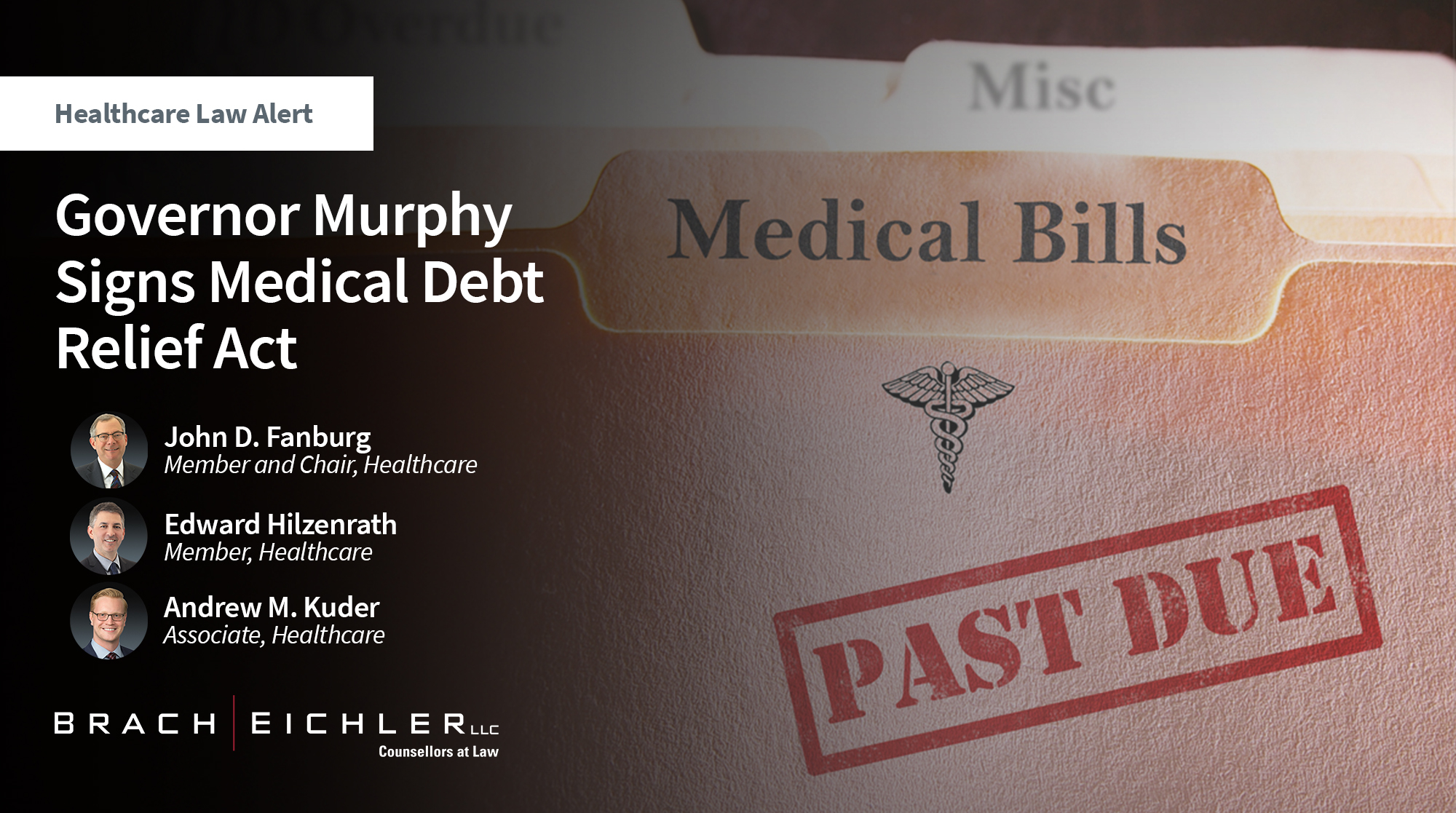Governor Murphy Signs Medical Debt Relief Act

July 22, 2024
On July 22, 2024, Governor Phil Murphy signed the Louisa Carman Medical Debt Relief Act into law. Effective July 22, 2024, the Act prohibits medical creditors and medical debt collectors from reporting any medical debt to a consumer reporting agency, such as Experian or TransUnion, for healthcare services performed on or after the effective date. “Medical creditor” is defined in the Act as any person or entity that provides health care services and to whom a patient owes money for health care services. This would include virtually all health care providers, including physician practices, ambulatory surgical centers, and hospitals. “Medical debt” is defined as debt arising from the receipt of health care services.

Follow Us on LinkedIn
Stay updated with our latest news and insights.
Effective July 22, 2025, the Act will further prohibit medical creditors and medical debt collectors from:
- Charging an interest rate on medical debt of more than 3 percent per annum;
- Garnishing the wages of a patient with annual income less than 600 percent of the federal poverty level; and
- Beginning collection actions until 120 days after the first bill for medical debt was sent and the patient has been offered a “reasonable payment plan.”
A “reasonable payment plan” is defined as a structured repayment arrangement that satisfies the following criteria:
- Monthly payment amounts set at a level that the patient can reasonably afford;
- A duration that allows the patient to repay the debt in full within a reasonable timeframe;
- The terms of the payment plan are documented in a written agreement provided to the patient;
- Provisions for adjusting the payment amounts and duration in response to changes in the patient’s financial circumstances;
- A grace period of at least 60 days for late payments; and
- The plan cannot charge an interest rate of more than 3 percent per annum.
Any communication made by a medical creditor or medical debt collector to a patient in the course of trying to collect a medical debt must include a statement that the medical creditor or medical debt collector has not reported the debt to a consumer reporting agency, and that any debt reported is void.
Providers should be aware of the Act’s requirements when assessing how to collect patient debt and when considering who to sell any unpaid receivables to, or whether to sell the debt at all.
Upon your request, we will forward you an official copy of the Act.
For additional information contact:
John D. Fanburg, Esq., Managing Member, Chair, Healthcare Practice, Co-Chair, Cannabis Industry at jfanburg@bracheichler.com or (973) 403-3107
Edward Hilzenrath, Esq., Member, Healthcare Practice, at ehilzenrath@bracheichler.com or (973) 403-3114
Andrew Kuder, Esq., Associate, Healthcare Practice, at akuder@bracheichler.com or (973) 403-3141
Related Practices: Healthcare Law
Related Attorney: John D. Fanburg, Edward Hilzenrath
Related Industry: Healthcare














